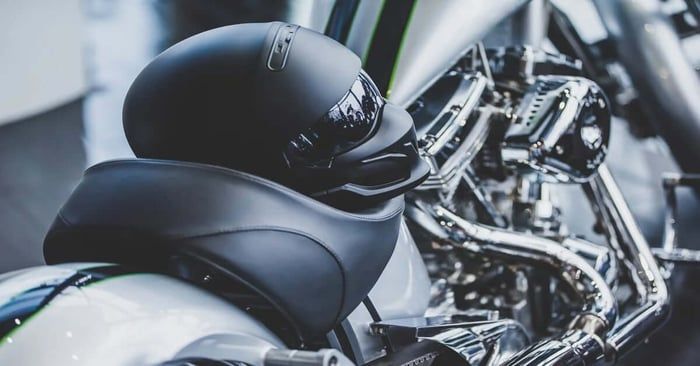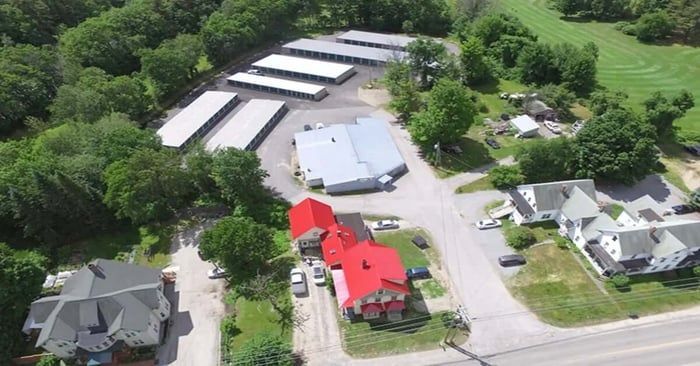Your Guide to Boat Preparation for Brewer Self Storage!

As the boating season wraps up, proper preparation is essential to keep your vessel in great condition during the off-season. Whether you're parking a fishing boat, pontoon, or speedboat, using a secure and convenient location like Brewer self storage can help protect your investment year-round.
Conveniently located at 76 Stevens Road, this All Purpose Storage facility offers outstanding features such as Boat Parking, Drive-Up Access, Modern, Clean & Bright facilities, Motorcycle Storage, Vehicle Storage, and a Security Fence to give you peace of mind and reclaim space. Plus, with a Protection Plan available, your boat is safeguarded against the unexpected.
If you're looking for comprehensive storage solutions, explore boat parking at storage units in Maine that meet your long-term or short-term storage needs. In this guide, we’ll walk you through the exact steps to prepare your boat for parking at the brewer facility — ensuring it’s ready to hit the water when boating season returns without a hitch.
Why Proper Boat Preparation Matters Before Parking at a Storage Facility
Boats are designed for water—not long periods of dormancy. Without proper preparation, everything from moisture buildup to engine corrosion can become an issue. Preparing your boat thoroughly before parking it at Brewer self storage will:
- Prevent mechanical issues
- Protect upholstery and interiors from mold
- Maintain resale value
- Ensure a smooth re-launch next season
Don’t overlook this crucial step in your boat ownership journey, especially when using premium storage units in Bangor parking. Taking the time to properly prepare your boat for storage can save you significant money in future repairs and help maintain the overall health and longevity of your vessel.
This includes cleaning and drying your boat thoroughly to prevent mold and mildew, protecting it from the elements with a durable cover, and ensuring all systems are properly winterized if stored during colder months. A little effort upfront goes a long way in keeping your boat in top condition and ready for your next adventure.
Step-by-Step Boat Cleaning Before Storage
Before your boat is parked at a trusted storage facility, a deep clean is absolutely essential. Dirt, saltwater residue, and marine growth can cause long-term damage if left untreated, leading to costly repairs down the line. Cleaning every surface, from the hull to the interior, helps prevent corrosion, mold, and stubborn stains, ensuring your boat stays in great condition while it’s not in use.
Cleaning Checklist:
- Wash the hull and topsides with boat-safe soap
- Remove barnacles and algae buildup from the bottom
- Clean and dry the interior thoroughly
- Empty and sanitize coolers, fish boxes, and storage lockers
- Lubricate hinges and moving parts
Dry every surface completely before storing your boat in storage units in Brewer to prevent mold and mildew. Consider using moisture-absorbing products inside the cabin for added protection.
Essential Boat Maintenance Tasks to Perform First
Maintenance now saves headaches later. Before using boat parking at storage units in Maine, tackle these essential tasks:
- Change the oil and filter to avoid corrosion
- Flush the cooling system with fresh water
- Inspect belts and hoses for wear
- Check the propeller for dings or fishing line
Staying ahead of these basic checks ensures your boat is launch-ready next season, with fewer surprises or costly repairs.
How to Winterize Your Boat for Parking at Brewer Self Storage
Winterization is critical in cold climates like Maine. If you plan to use storage units in Orrington, these steps are musts:
- Drain all water systems (including bilge and freshwater tanks)
- Add antifreeze to protect the engine and plumbing
- Remove water from ballast tanks (if applicable)
- Fog the engine to prevent internal corrosion
- Use fuel stabilizer in the tank
Storage units in Brewer offer everything you need to store your boat confidently during freezing months, including weather-resilient unit designs and protection from harsh winter conditions.
Fuel System Preparation: What You Need to Know
Your fuel system can suffer damage if not properly prepared before parking it at storage options. Follow these fuel preparation steps:
- Fill the tank to prevent condensation
- Add marine fuel stabilizer
- Run the engine to circulate treated fuel
This ensures the fuel lines and injectors are protected while your boat rests in a top-rated facility like Brewer storage. Remember to check for leaks or damaged fuel lines before storing.
Battery and Electrical System Safety Tips
Batteries are often forgotten but critical to maintain. Here’s how to care for them before parking your boat at a self storage facility:
- Disconnect and remove the battery
- Store it in a dry, safe place
- Check the charge level monthly
- Clean terminals with a wire brush
If you're using boat parking at storage units in Bangor, keeping the battery indoors protects it from freezing temperatures and extends its lifespan. It also prevents electrical drains and potential damage.
Covering and Protecting Your Boat from Dust and Moisture
Once your boat is cleaned and maintained, protect it from dust and the elements.
Recommended Boat Covers:
- Breathable, waterproof covers
- UV-resistant materials
- Custom-fitted for your boat type
For additional protection, storage units in Brewer offer a Security Fence to ensure your covered boat remains untouched until spring. Tying down the cover securely prevents wind damage.
Trailer and Tire Preparation Before Long-Term Parking at a Storage Facility
Neglecting your trailer could lead to flat spots, corrosion, and alignment issues. Here’s how to prepare:
- Check tire pressure and inflate to manufacturer specs
- Block tires to prevent rolling
- Grease wheel bearings
- Inspect the trailer frame for rust
Proper trailer prep is essential before parking at Brewer storage units or any storage units in Maine. Cover the wheels to prevent UV damage.
Best Practices for Engine and Fluids Storage
Aside from oil and fuel, other fluids need attention before parking your boat at a storage facility:
- Drain and replace coolant
- Top off hydraulic fluids
- Inspect and replace gear lube if needed
Also, check for any leaks and address them before parking your vessel at storage in Brewer for the winter months. Keeping fluids clean helps extend the engine's life and readiness.
Common Mistakes to Avoid for Boat Parking at a Storage Facility
Avoiding these common errors can save you time and money:
- Failing to drain water systems
- Skipping engine fogging
- Leaving perishables or flammables onboard
- Not using a breathable cover
- Forgetting to check tire pressure
Plan ahead and make the most of what storage units in Orrington have to offer by avoiding these pitfalls. A few extra steps now can prevent hundreds of dollars in damage later.
FAQs: Boat Storage at Brewer Storage Units
How do I know if my boat will fit in boat parking?
Measure the full length, width, and height of your boat and trailer. Then contact Brewer Storage to confirm available Boat Parking dimensions that suit your needs. Staff can assist with sizing and recommendations.
Can I have hassle-free and easy access to my boat during the winter?
Yes, storage units in Brewer provide convenient access, though it’s best to minimize visits during icy weather. Confirm access hours with the facility in advance to plan around seasonal restrictions.
Secure Your Boat Parking Now With Brewer Self Storage
Boat parking isn’t just about finding a place to park — it’s about preserving your investment for years to come. By choosing the Brewer self storage space, you get access to secure storage in a modern facility with features like Boat Parking, protection plans, security fences, and more.
With smart planning and the right preparation steps, your boat will be protected and ready for the next adventure because your investment is our top priority at Brewer.
Don’t wait until the first snowfall — contact us and reserve your boat parking space today at All Purpose Storage, your trusted partner for storage units in Maine.





